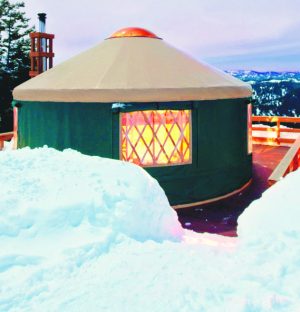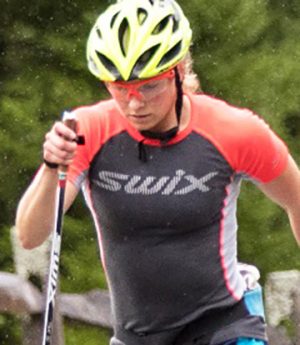Back then it was important to be strong, but in today’s skiing it is even more so, with skating and even in classic because of the huge reduction in hill lengths because of the short loop format that is used. There is way more double poling happening and it will continue to grow in proportion to the use of the diagonal stride. Cross country skiers have shown the propensity to train anything they want to when they set their minds to it.
When skating started it was said no one could skate a whole course, and then it was off-set was the technique, which quickly became V1, which is now the most used technique. It is now being thought that the diagonal stride will be dead soon, as everyone will double pole everything and it will be faster.
Here is some reading if you don’t believe it – click HERE.
It is not too late for you to get on board – remember specific strength gains beat general endurance work – everyone does big weights and small reps now – make it a part of your future success.






![National camp action [P]...](https://skitrax.com/wp-content/uploads/2019/08/Duluth-4-2019-08-08-at-10.46.51-AM-300x246.png)
![Matt Liebsch on the CXC Elite Team [P] CXC...](https://skitrax.com/wp-content/uploads/2019/08/Matt-Liebsch-CXC.2-525x700.4-300x267.jpg)
![Dan LaBlanc [P]...](https://skitrax.com/wp-content/uploads/2019/08/Dan-LaBlanc-img_1855.3.jpg)

![[P] courtesy of Marty Hall](http://skitrax.com/wp-content/uploads/2012/08/Marty-Hall-Way-I-See-It.jpg)
![XC Ladies (l-r) Kikkan Randall, Liz Stephen, Holly Brooks [P] Matt Whitcomb](http://skitrax.com/wp-content/uploads/2012/08/XC-Ladies-Back-profile.jpg)
August 15th, 2012 at 9:21 pm
Your researchers need to explain Johaug/Weng/ Kristoferson. (More to skiing than just sprints.)
I admit to using a ERG, bands and a weight sled, but max weights are just too dangerous; add too much body weight.
zimmer3@earthlink.net
EarthLink Revolves Around You.
August 15th, 2012 at 9:23 pm
Zimmer—count it overall WC—and it goes 1. Bjorgen 2 Kowalzyck 3 Johaug 4 Kalla 5 Randall 6 Kristofferson and 10 is Weng—-so, I’m saying this will be the trend—more and more strength and lots of big weights–and devices that let you really train specific strength-
http://www.youtube.com/watch?v=HN3ry7Vv6IQ listen carefully to Ola Rawald in this tape—–remember we are talking here to the future—I just think that Bjorgen has a 4-5 yr advantage on Randall who is now 2 yrs ahead of the others—–think of Randall just 2 years ago and how far she has come—37th overall in2010 and 10th in 2011 and now 5th this year
Marty
August 15th, 2012 at 9:24 pm
Marty-
Yeah, Randall is kicking despite hauling all that extra weight up hills. Watch Weng; what is she 18? I’ve seen way too many game ending hernia ted discs lifting.
My mantra is find a weakness; make it a strength. Don’t waste time with other stuff except to maintain. DON”T GET HURT!
Wouldn’t be shocked to see Johaug on top next year; watch Weng.
Enjoy your column
August 15th, 2012 at 9:25 pm
Bjorgen is getting older—-she is due to break down—I’m sure her big goalis to make it to Sochii—I’m guessing she will pass up or do a reduced TdS both years.
No comments about the Swedish Ski Research Centers thoughts—these are the scientists—they don’t always nail it—the sport continues to change—interesting isn’t it—gives us things to talk about—so are the Johaugs the bodies of the future or is it the Randalls/Bjorgens—-there is more to change for the better if you take the Randall way
Marty
August 15th, 2012 at 9:27 pm
Explanation—Zimmer couldn’t access SkiTraxes comment box, so he e-mailed me and I wanted to share his comments to the other readers—so I transposed his comments.
Enjoy.
August 16th, 2012 at 12:07 pm
Marty
You were definitly at he forefront of strength training and Right on!
As an athlete and a coach I was a late comer to max strength training. In 1991 I started max strength trainign for the older athletes at Stratton Mountain School. I believe it had a big and postive impact on performance. One year after doing max strength in the spring, with a medium volume of endurance training our team across the board had substaintial improvement in a stadardized 7 kilometer rolling uphill time trial. Not a scientific study but a definite indication. As I moved into my APU Nordic Ski Center years I carried in the same max strength training. Both in a general and specific format. I did this for both our young elie athletes and even our older masters skiers ( some in their 60’s and 70’s). If built in correctly there is minimal risk of injury but a susbtainly upside for improved performance.
The size issue is debatable…Some athletes, persumed those with more fast twitch fibers gain muscle mass, where others dont gain much mass but do improve strength.
Approaching my late 50’s I will continue to do max strength training. Perhaps it is even more important as we age to maintain muscle mass that tends to decline with age.
jim
August 16th, 2012 at 8:00 pm
Jim–Thanks for your input—this has been a nice discussion—-but you can help out some more in another area. Where athletes—on their own volition have taken gels just before races and have had “the crash” I’ve run into with my own coaching and in a number of other discussions with other coaches.
I’m sure the coaches all over NA would appreciate hearing from a non-biased resource—on what the outcomes of such an action are!
My question about this is—when you uase a gel it is important to really hydrate—what happens if you don’t—pre-race and in race-what are the physiological out comes—negative and positive.
If you write a piece—send it to me and I’ll get it posted on and in SkiTrax.
Thanks—all the best,
Marty
PS-You are right about the lifting in old age—it has been a big bonus to me over the years and more so now that I’m fighting the losing body mass battle—the war is on!!!
August 20th, 2012 at 11:10 am
I enjoyed the article, I also believe maximal strength training has helped a lot but, how do you feel about other forms of strength training that don’t necessarily involve the big weights?
August 20th, 2012 at 12:19 pm
Nathan—you can do it with out the weights its just that it will take you longer—look, I’m not against anything that focuses on strength—the new double and single pole machines—etc–dbl poling on roller skis for big hours—they all work—-but you have to do them—are you reading Kikkan’s diary here on SkiTraks—see how much strength trng she is doing—weight and on roller skis—it’s huge!!!!!
Look at this http://www.youtube.com/watch?v=t2zCCgGB6hE
And also the video above—listen to Ola Rawald—-you decide—-Marty